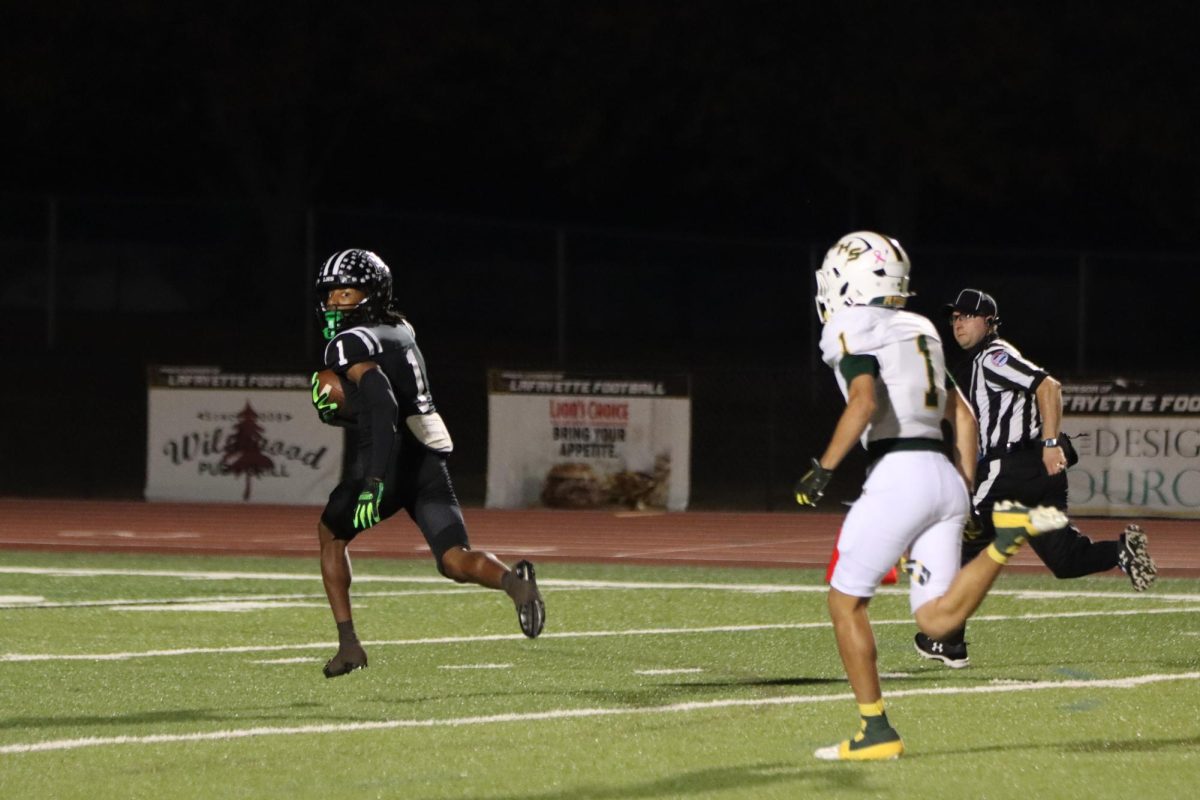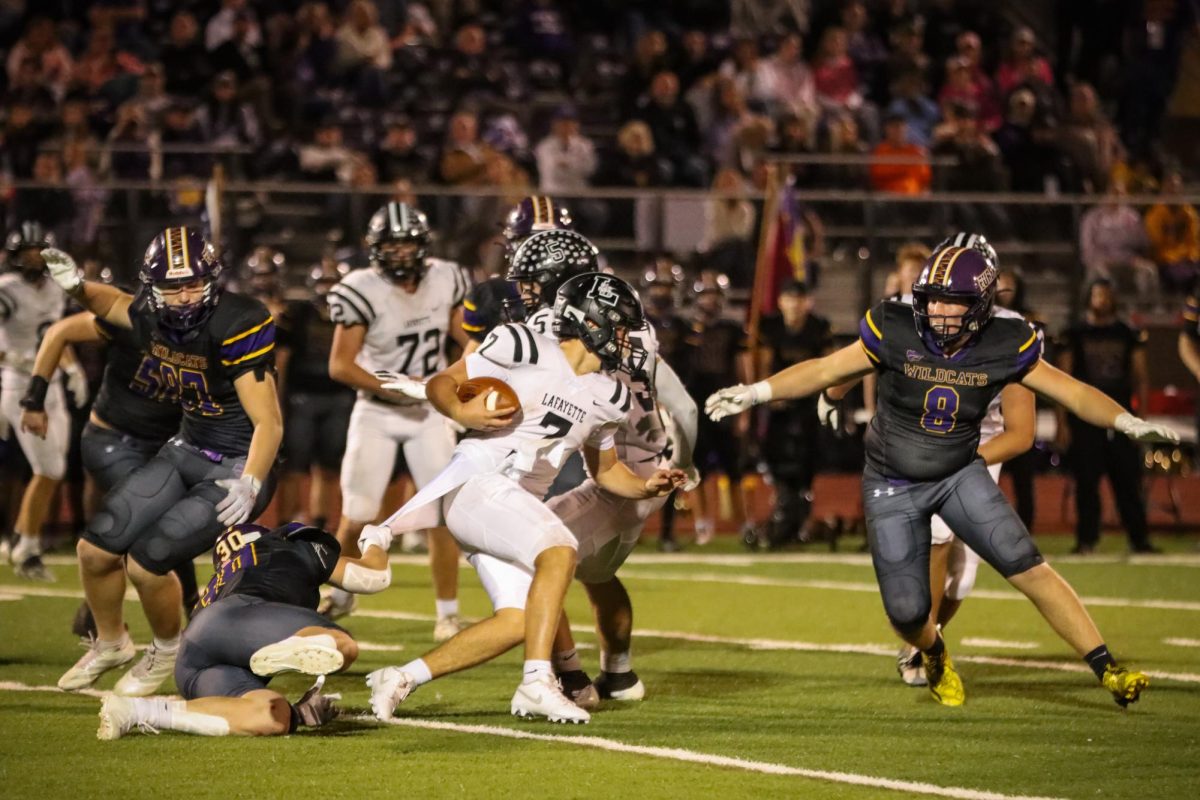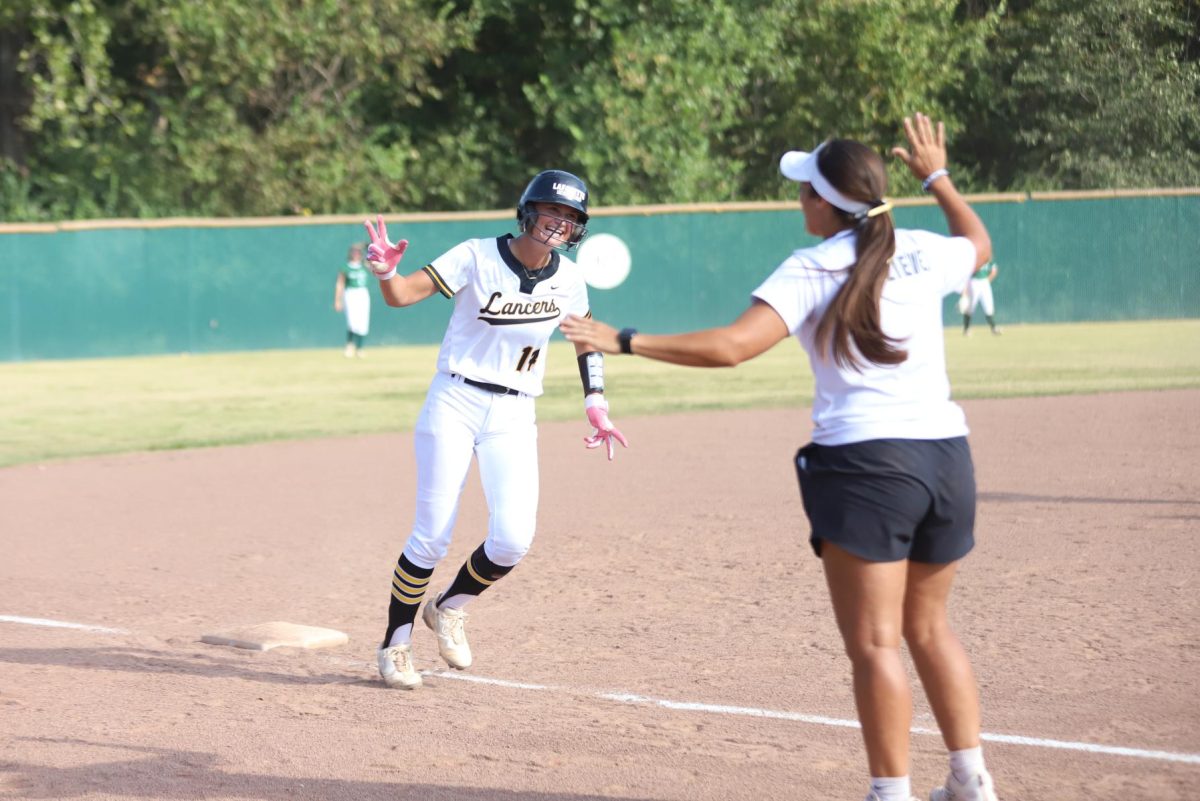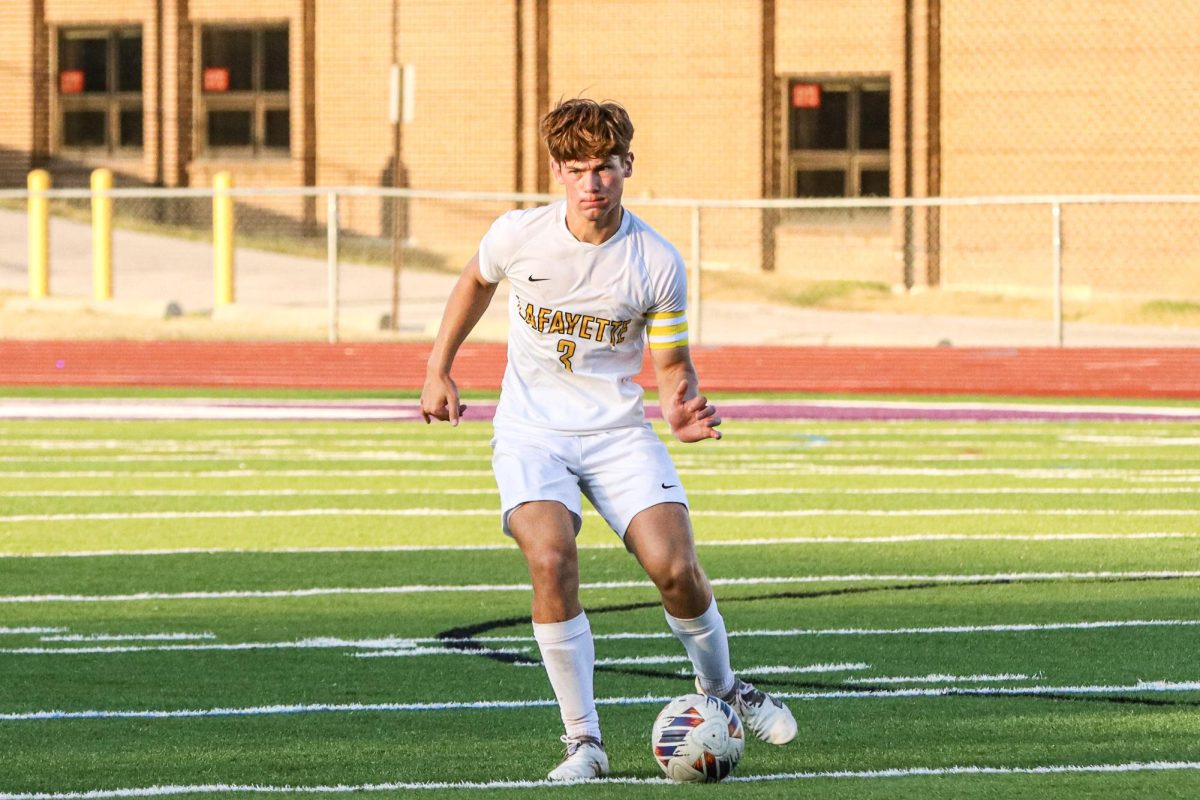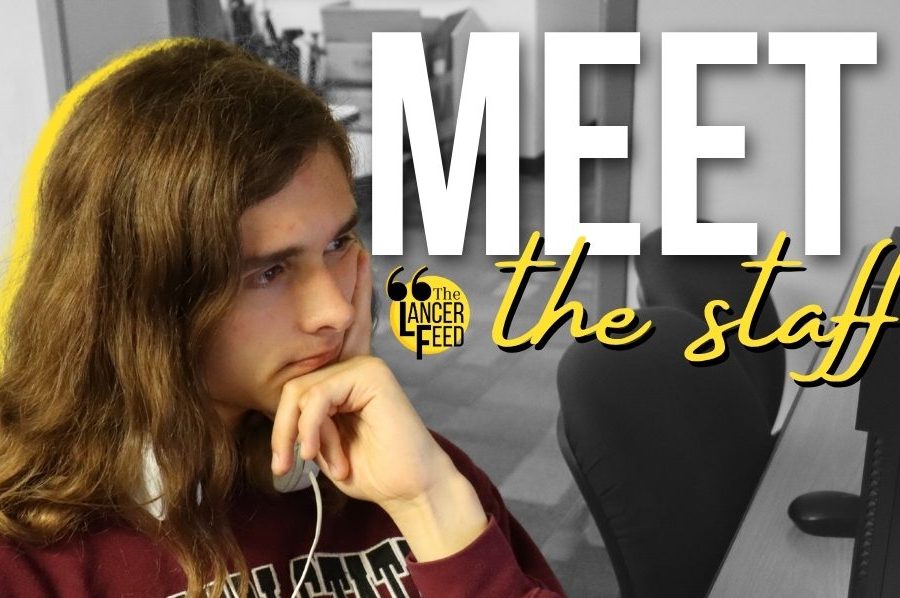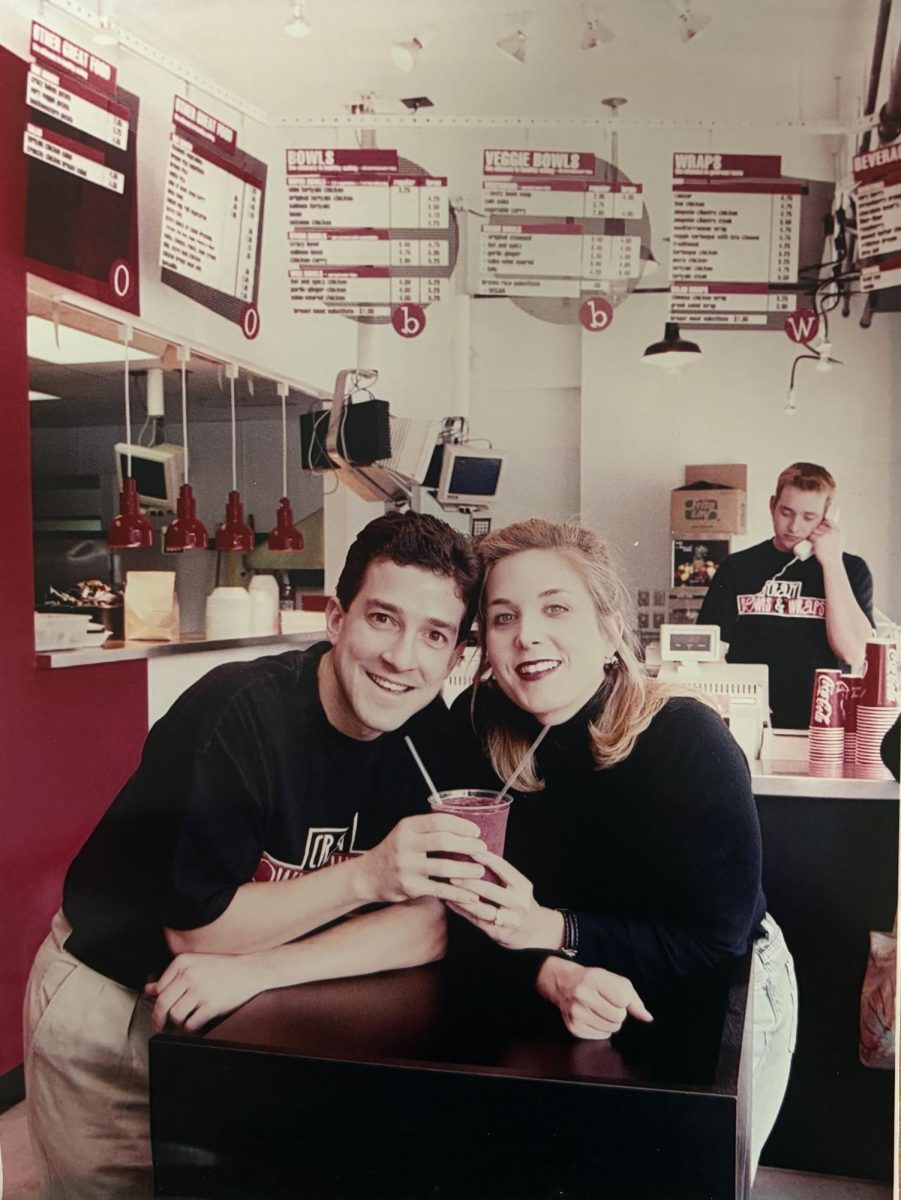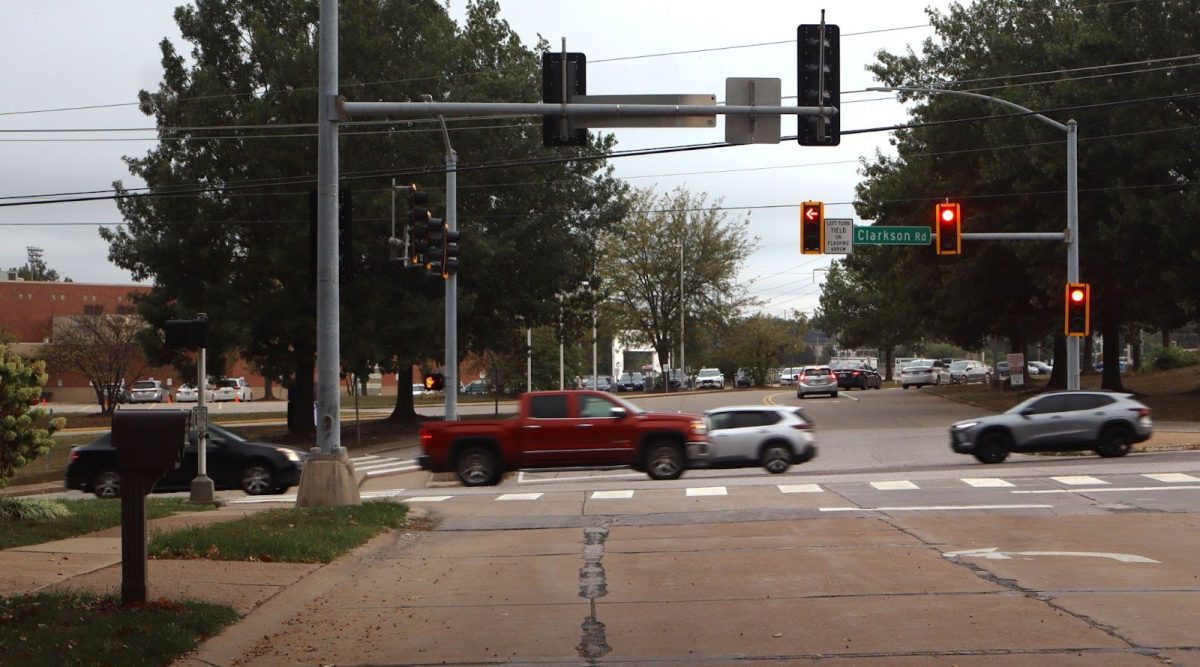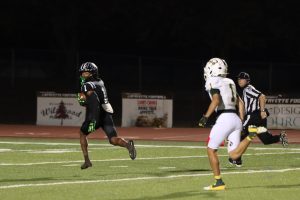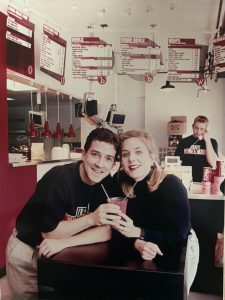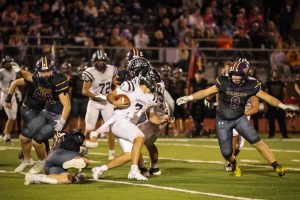From the Room Back to Zoom
Number of in-person learners switching to virtual rises by 20% in four weeks
Guitar teacher Traci Bolton simultaneously instructs her in-person students and her online learners during her 4th Hour guitar ensemble class. Unlike in this picture, virtual students next year will be asynchronous.
December 9, 2020
It is no secret that students were anxious to get back to school for in-person learning after campuses closed following last year’s Spring Break. When Rockwood announced that secondary students could return during 2nd Quarter beginning on Nov. 12, 75% of Lafayette students selected to attend classes in person.
However, in one month, the number of in-person students has dropped significantly as more and more Lancers are making the choice to return to virtual learning.
Between Nov. 12 and Dec. 8, the number of students attending in-person decreased by 20%, with a total of 55% currently remaining at Lafayette in-person. In comparison, virtual learning student numbers have increased to 45% from the initial 25% who elected to remain online.
Assistant Principal Kirti Mehrotra said, “These numbers are changing all day long. We get emails or calls from parents to switch to virtual throughout the day. I am not surprised at the numbers at all. I think the number of students choosing virtual will continue to grow as the number of COVID cases grows in our area.”
On Nov. 12, the total number of students attending school in-person from all four RSD high schools was at 74%. Similarly to LHS, in-person attendees at the other RSD high schools has decreased. Currently, the number of in-person attendees at all RSD high schools is 59%.
Assistant Principal Colleen Fields said, “I’m not surprised by the numbers, as I know parents and students are concerned with the rising number of COVID-positive cases in our area. I also know that many families are preparing to welcome back college students or are planning to see extended family over the holiday break, so I can understand the desire to be virtual.”
The number of virtual students in each grade is increasing daily. As of Dec. 7, the Junior Class has the largest percentage of online students with over 50% participating in a virtual setting.
After experiencing what learning in-person at Lafayette looked like this quarter and weighing the advantages and disadvantages, junior Nikki Linsenbardt made the switch and decided that online would be better for her.
“I returned to school initially because I was really looking forward to seeing my teachers and friends. I decided to switch back to online school because I was constantly hungry at school, and I was unable to see my teachers, or friends very much,” Linsenbardt said. “I think that during this time it is hard to come up with a plan to please everybody, but I didn’t like the fact that we weren’t allowed to eat, except in the halls. I just felt like there were so many rules that I found myself worrying whether I was breaking one every minute.”
Freshman Lucas Brown decided to attend school in-person on Nov. 12 and was able to walk the halls of Lafayette as a student for one of the first times. Despite his return to in-person learning, Brown also made the switch back to online school.
“Mostly, safety concerns made me switch back to online. It was almost entirely my parent’s decision, but I still felt at least a little uneasy about it,” Brown said. “I saw kids getting pulled out during class for quarantine, some sat very near to me, the numbers of cases were rising, and I definitely think it was a good choice for me personally to go back online just in case. I would really not like having to quarantine from my family during the holiday season, so online just makes more sense right now until things settle down and get a little better.”
Although Brown feels safer doing online learning, he misses certain aspects of what it was like for those classes where he was in-person.
“My overall experience was good. I could understand things easier, and it felt better than online. Really the only thing better about online is safety. But it was cool to get out of the house and see people again, as I said before, I was able to be in Lafayette for the first time, and it made doing schoolwork a lot better because it wasn’t just me sitting in my room for like five hours,” Brown said.
In order to provide a safe in-person environment for students and meet the needs of those both in the classroom and out, the classroom setup looks very different from what it looks like during a typical year.
Science teacher Scott Haxton said, “I currently have my in-person and virtual students join the Zoom meeting during notes. I write on my PowerPoint slides with a tablet. While my virtual students do not have the opportunity to physically collect laboratory data, they do observe the collection of data and are actively engaged in the pre-lab and post-lab class discussions.”
For other more hands-on, active classes such as orchestra, band and choir, the classroom doesn’t give students an opportunity to imagine that things are the way they once were.
Orchestra teacher Joseph Gutowski said, “My classroom is socially distanced at the moment, so I have it in rows instead of in the arc so that feels really strange. People are spaced apart and they don’t have stand partners so they’re not getting quite the same experience.”
Teachers are also constantly having to adjust to the fluctuating ratio of online vs. in-person students in each of their classes. They meet many challenges when it comes to meeting the needs of all their students.
Language arts teacher Kathryn Shea said, “I’ve had to figure out technology at a rapid pace. I’ve had to revamp my lessons or create new lessons for all students to be able to complete and access in various ways. I have to try and build relationships with students whose faces I’ve never seen because I’m always looking at a black screen.”
It’s also growing increasingly difficult to get virtual students to participate in class due to Zoom errors, bad connections and time restraints.
“It’s certainly not an ideal situation. I think most in-person students see the virtual students as having it easier because they get to stay home and sleep in and hide behind a black screen and look at their phones without consequences. I know not all online learners are doing this, but the bad apples are giving the online classroom experience a bad rap,” language arts teacher Jennifer Ingram said.
Gutowski agreed that trying to manage both online and in-person learners at the same time was especially challenging.
“It’s really hard to keep the virtual kids engaged. I don’t know what they’re doing so much of the time. Expecting them to play with what’s going on here (in class) is just really hard. I’m constantly checking to see if there’s any chats or anything else that’s coming through, but otherwise I just run rehearsal with the people that are here. It’s really hard for a teacher to not get burnt out trying to make sure their online students are taken care of,” he said.
With the number of virtual students continuing to rise, the future of what the school setting will look like is currently undecided.
“To be honest, I’m not sure what I anticipate to happen once we return from our holiday break. My hope is always that everyone is able to stay safe, enjoy time with their loved ones and be able to participate in school,” Fields said.







